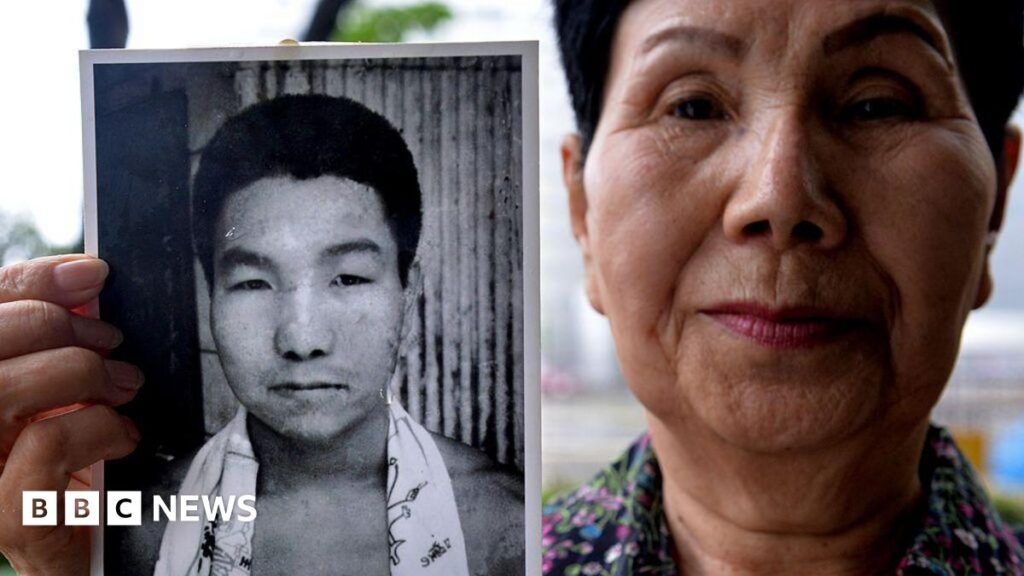Hideka says the core of the injustice was the forced confession and the coercion her brother was subjected to.
But Mr. Johnson says false accusations don’t happen because of a single mistake. Instead, they are compounded by failures at every level, from the police to the prosecution, the courts and parliament.
“The judges have the final say,” he added. “When there is a wrongful conviction, it is, after all, because they said so. All too often, the responsibility of judges to deliver and uphold wrongful convictions is neglected, silenced and ignored.”
Against this backdrop, Mr. Hakamata’s acquittal was a watershed moment – a rare moment of retrospective justice.
After Mr. Hakamata was found not guilty, the judge presiding over the retrial apologized to Hideko for how long it had taken for justice to be served.
After a while, Takayoshi Tsuda, the Shizuoka police chief, visited her home and bowed to her brother and sister.
“For the past 58 years … we have caused you indescribable anxiety and burden,” Mr Tsuda said. “We are truly sorry.”
Hideka gave an unexpected answer to the police chief.
“We believe that everything that happened was our destiny,” she said. “We won’t complain about anything now.”

